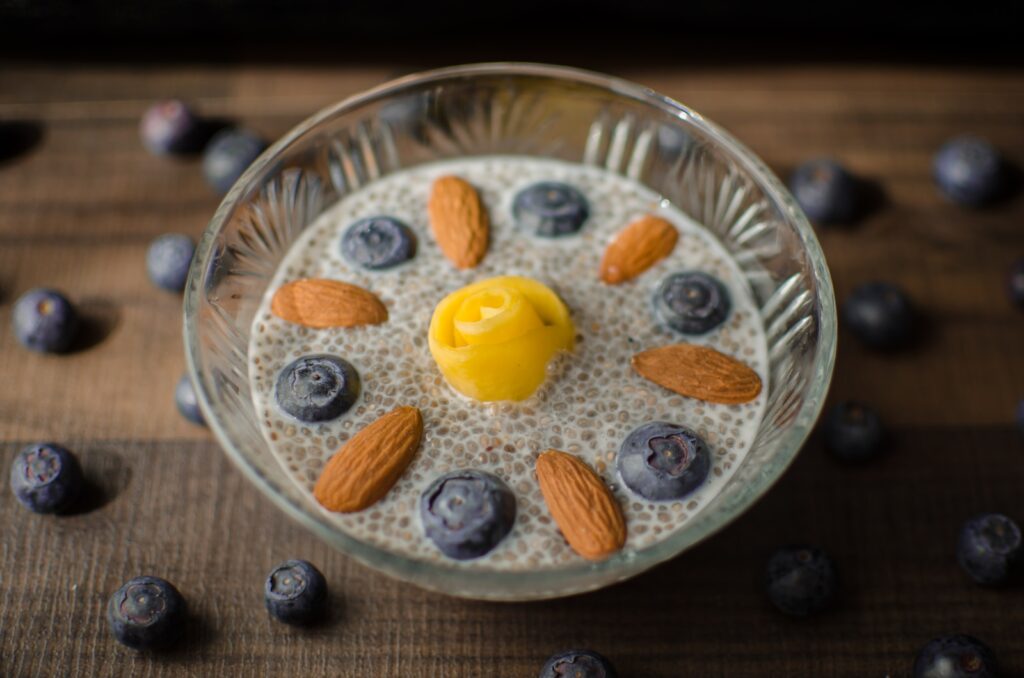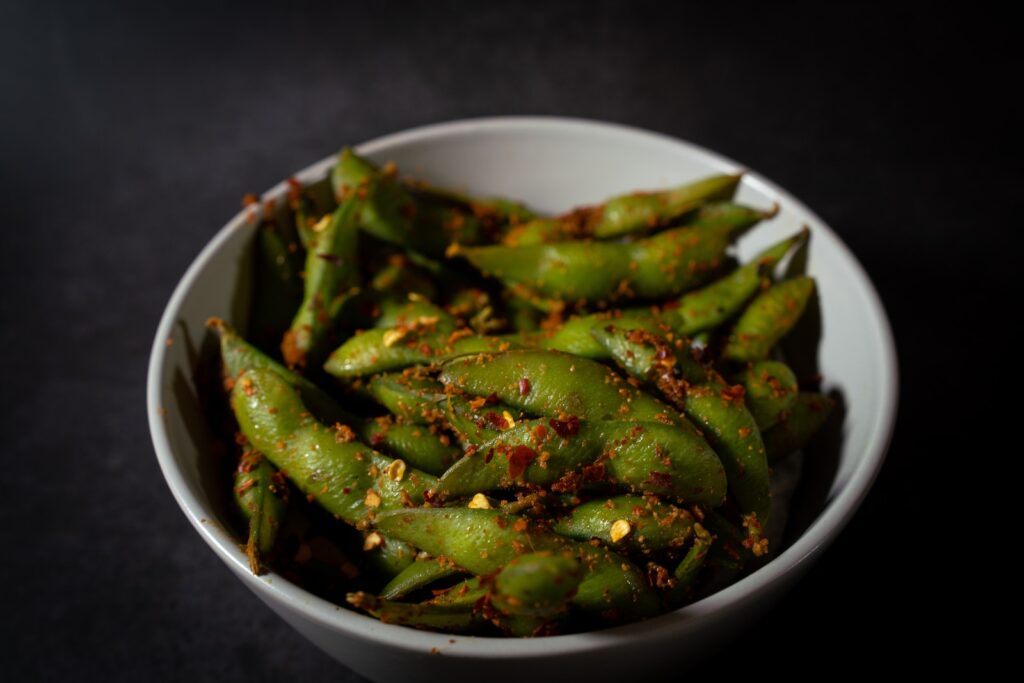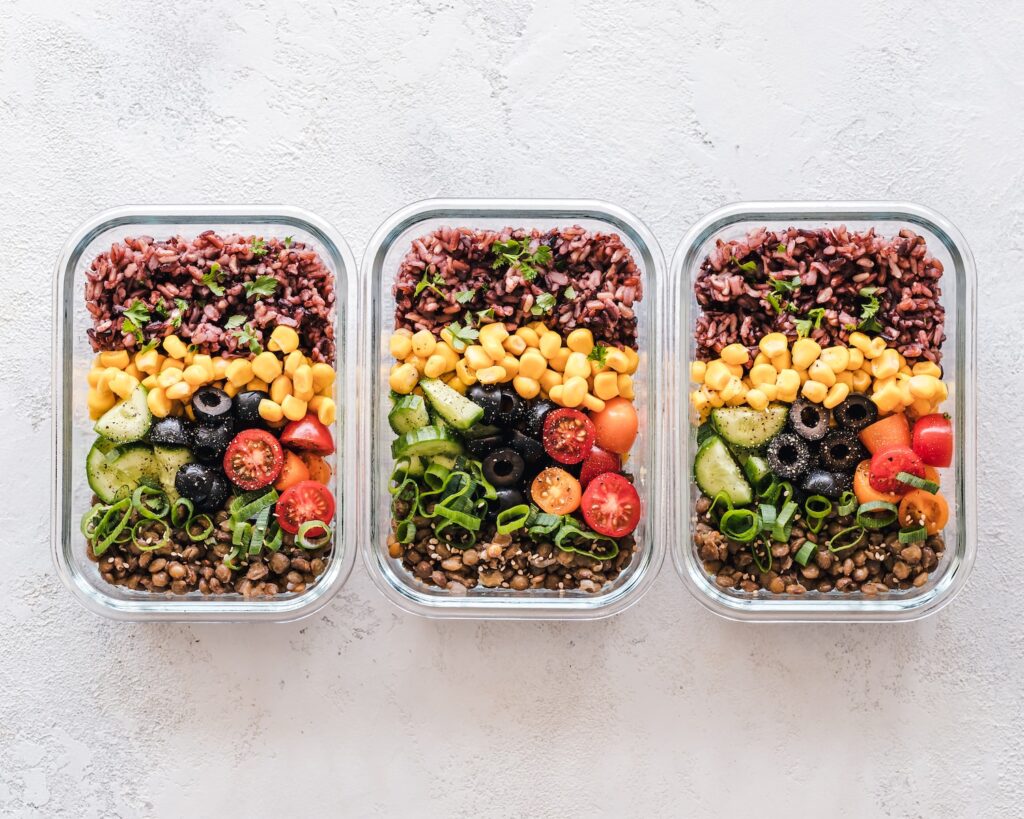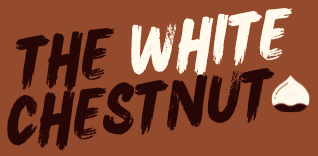Introduction
Embarking on a plant-based journey can be an exciting adventure, but finding the right protein sources might seem daunting. Fear not! We’ve curated a list of the top 8 best vegan protein sources to ensure you meet your nutritional needs while enjoying delicious meals.
From legumes and grains to nuts and seeds, there’s an abundance of options for everyone wanting to enrich their diet with plant-based proteins.
Key Takeaways
- Incorporating vegan protein sources into your plant-based diet is easy and delicious. Legumes and beans, quinoa, nuts and seeds like chia and hemp seeds, and soy products like tofu and tempeh are fantastic options.
- Vegan protein sources can provide all the essential amino acids required for optimal well-being while also being low in saturated fat, and high in fiber, antioxidants which provide many health benefits reducing chronic diseases’ risk.
- By choosing vegan protein sources over animal-derived ones like meat or dairy products you can significantly reduce your carbon footprint contributing to protecting the planet’s future sustainability.
What Are Vegan Protein Sources?
Vegan protein sources refer to plant-based foods that provide a significant amount of protein, an essential nutrient required for various bodily functions.
These sources are free from animal products and by-products, making them suitable for individuals following a vegan or vegetarian lifestyle.
Examples of vegan protein sources include legumes and beans (such as lentils and chickpeas), soy products (like tofu, tempeh, and edamame), whole grains (quinoa is exceptionally rich in nutrients), nuts and seeds like chia seeds or hemp seeds, nutritional yeast which is packed with B vitamins along with plant-based milk such as soy milk.
Contrary to popular belief that vegans might struggle with meeting their daily recommended protein needs due to limited options compared to meat-eaters, numerous studies showcase how easy it can be when incorporating the right variety of plants into one’s diet plan.
For instance – firm tofu contains 10g of protein per 1/2 cup serving while lentils offer substantial amounts too.
Top 8 Best Vegan Protein Sources For A Healthy Plant-Based Diet
Explore these ten vegan protein sources for a healthy plant-based diet and discover how easy it is to meet your nutritional needs without consuming animal products.
Legumes And Beans Like Chickpeas And Lentils
Legumes and beans are fantastic sources of vegan protein that can be easily incorporated into any plant-based diet. Chickpeas, also known as garbanzo beans, and lentils are two top options in this category.
Not only do they contain high amounts of protein per serving, but they’re also rich in other essential nutrients like fiber, iron, and folate.
There are countless ways to add legumes and beans to your meals – toss them into salads or soups for an extra boost of protein or use them as a base for veggie burgers or dips like hummus.
Since there are so many varieties out there (think black beans, navy beans, kidney beans.
Quinoa, A Complete Protein Source
Quinoa is a gluten-free grain that is rich in protein and is considered a complete protein source. This means it contains all nine essential amino acids that the body cannot produce on its own.
Just one cup of cooked quinoa can provide up to 8g of protein which makes it an excellent option for vegans looking to incorporate more plant-based sources of protein into their diet.
In addition, quinoa is also high in fiber, iron, magnesium, and potassium, making it a nutrient-dense food choice.
Nuts And Seeds Like Chia And Hemp Seeds
Nuts and seeds are another incredible sources of vegan protein, with chia and hemp seeds being among the best. Just one ounce of chia or hemp seeds packs in roughly 10 grams of protein, making it a solid option for those following a plant-based diet.
In addition to their high protein content, these tiny powerhouses are also rich in healthy fats like omega-3s and fiber, which can help keep you feeling full and satisfied after meals.
Add them to your morning smoothie or sprinkle them on top of salads for an easy boost of nutrition throughout the day.

Soy Products Like Tofu And Tempeh
Soy products like tofu and tempeh are excellent sources of protein for vegans. Tofu is made from soy milk and comes in different textures, ranging from firm to soft.
It’s versatile and can be used in recipes as a meat substitute or added to smoothies for an extra dose of protein. A ½ cup serving of firm tofu contains about 10g of protein, making it a great option for any meal.
Tempeh is made from fermented soybeans and has a slightly nutty flavor that pairs well with stir-fries and salads. It’s also rich in calcium, manganese, and selenium – all essential minerals that support overall health.

Nutritional Yeast And Seitan
Nutritional yeast and seitan are two lesser-known sources of vegan protein that offer a unique flavor profile. Nutritional yeast is a deactivated yeast that is often used as a seasoning or cheese substitute due to its nutty, cheesy taste.
On the other hand, seitan, also known as wheat meat or wheat gluten, is made from gluten, the main protein in wheat. It has a chewy texture and can be flavored with spices and seasonings to mimic the taste of meat.
Both nutritional yeast and seitan are versatile ingredients that can be used in various recipes such as stews, soups, salads, burgers, pasta dishes, and more.
Spirulina And Edamame
Spirulina and edamame are two excellent sources of plant-based protein. Spirulina is a type of blue-green algae that has been consumed for centuries and is often found in powder or supplement form.
It’s rich in amino acids, which makes it a complete protein source. Edamame, on the other hand, are young soybeans still in their pods and can be enjoyed as a snack or added to salads or stir-fries.
Both spirulina and edamame are not only nutrient-dense but also environmentally sustainable options for those following a vegan diet. Incorporating these two foods into your plant-based meals can help boost your daily protein intake while providing numerous health benefits such as reducing chronic disease risk and supporting athletic performance due to their easily digestible low-fat content.

Amaranth, A Gluten-Free Grain
Amaranth is a gluten-free grain that has been gaining popularity as a vegan protein source. It’s packed with essential nutrients like calcium, iron, and magnesium.
In fact, just one cup of cooked amaranth contains 9 grams of protein! Amaranth can be used in place of rice or quinoa and added to soups, stews, and salads or eaten alone as a side dish.
It has a slightly nutty flavor and fluffy texture when cooked properly.
Plant-Based Milk Such As Soy Milk
Plant-based milk such as soy milk is an excellent source of vegan protein. Soy milk, for example, contains about 8 grams of protein per cup, which is comparable to cow’s milk.
It is also rich in essential amino acids and fortified with calcium and vitamin D.
One advantage of plant-based milk is that they have a lower fat content than animal-based alternatives. This makes them perfect for those who want to lose weight or control their cholesterol levels.
Plant-based milk can be enjoyed on its own or used in various recipes as a substitute for dairy milk.
Benefits Of A Plant-Based Diet And Vegan Protein Sources
A plant-based diet with vegan protein sources can reduce the risk of chronic diseases, promote environmental sustainability and ethical considerations, enhance athletic performance, and provide easily digestible, low-fat protein options.
Reduced Risk Of Chronic Diseases
Eating a plant-based diet rich in vegan protein sources can help reduce the risk of chronic diseases such as heart disease, type 2 diabetes, and some cancers. Studies have shown that diets high in animal products can lead to these diseases due to their high levels of saturated fat and cholesterol.
On the other hand, plant-based proteins are often lower in saturated fat and higher in fiber and antioxidants, which provide many health benefits.
By incorporating vegan protein sources into your meals regularly, you can improve your overall health and well-being.
Environmentally Sustainable
Choosing a plant-based diet is not only beneficial for our health, but it also helps in reducing our carbon footprint. Animal agriculture is one of the biggest contributors to greenhouse gas emissions, deforestation, and water pollution.
On the other hand, plant-based sources of protein like lentils, beans, and nuts have a lower environmental impact compared to meat and dairy products. For example, producing a pound of beef requires around 1,800 gallons of water while producing an equivalent amount of lentils only needs around 43 gallons.
In addition to that, many vegan protein sources are grown organically without pesticides and fertilizers that can harm the environment. By choosing organic plant-based foods or locally grown produce whenever possible you can further minimize your environmental impact.
Ethical Considerations
Another important factor to consider when adopting a plant-based diet is the ethical implications. Many people choose to go vegan or vegetarian because they disagree with the treatment of animals in factory farming operations.
By avoiding meat and animal products, individuals can take a stand against these practices and promote more humane treatment of animals.
One way to ensure that your food choices align with your values is by buying from local farms or companies that prioritize sustainable and ethical practices.
This not only supports small businesses but gives you peace of mind knowing where your food comes from.
Enhanced Athletic Performance
In addition to the health benefits of a plant-based diet, incorporating vegan protein sources into your meals can also enhance athletic performance.
Many athletes have switched to plant-based diets and seen improvements in their energy levels, recovery time, and overall endurance.
For example, quinoa is a complete protein source that contains all nine essential amino acids necessary for muscle repair and growth. Soy products like tofu and tempeh are great options as they contain high amounts of calcium, which is important for bone strength in active individuals.
By incorporating these vegan protein sources into your diet, you can build lean muscles without consuming animal products or processed foods that often come with added sugars or unhealthy fats.
Easily Digestible And Low In Fat
Plant-based protein sources are not only packed with nutrients but also easily digestible and low in fat. Unlike animal proteins that can be high in saturated fats, plant-based proteins like legumes, beans, and nuts offer a healthier option for those looking to maintain a balanced diet.
Soy products such as tofu and tempeh are also great options for those seeking easily digestible protein sources with minimal fat content. Tofu contains just over 100 calories per half-cup serving while providing almost 10 grams of protein.
Overall, incorporating vegan protein sources into your diet offers numerous health benefits such as maintaining weight loss goals and reducing the risk of chronic medical conditions such as heart disease or diabetes.
How To Incorporate Vegan Protein Sources Into Your Diet
Incorporating vegan protein sources into your diet can be easy by planning ahead, using plant-based protein powders and supplements, eating a variety of foods, adding protein-rich ingredients to recipes, and snacking on vegan protein sources throughout the day.
Planning And Preparation
Incorporating vegan protein sources into your diet requires some planning and preparation. Start by making a meal plan for the week, including protein-rich foods like lentils, tofu, and nuts.
Meal prepping is also key to staying on track with your plant-based diet. Cook up a big batch of lentil soup or roasted chickpeas at the beginning of the week to add to meals throughout the week.
Don’t forget about incorporating plant-based protein powders into smoothies or oatmeal bowls as another option for increasing your daily intake.

Plant-Based Protein Powders And Supplements
Plant-based protein powders and supplements are a great way to boost your protein intake if you’re struggling to meet your daily requirements through whole foods alone.
Many plant-based protein powders and supplements are made from ingredients like soy, pea, rice, or hemp.
When choosing a plant-based protein powder or supplement make sure it’s free from artificial sweeteners, colors or additives. Look for those with at least 20 grams of protein per serving and try different brands until you find one that works well for you.
Remember that while supplements can be helpful in meeting your nutritional needs they shouldn’t replace whole food sources of nutrients entirely.
Eating A Variety Of Plant-Based Foods
To get the most out of a plant-based diet, it’s important to eat a variety of foods that are high in protein. This will ensure you’re getting all the nutrients and essential amino acids your body needs.
Don’t be afraid to mix things up and try new recipes that incorporate different types of beans, lentils, nuts, seeds, and grains.
Another great way to add variety is by experimenting with mock meats made from soy or seitan. These products can be found at most health food stores and can be used as substitutes for meat in many different types of dishes.
If you’re not sure where to start, try using tempeh or tofu in stir-fries or scrambles for breakfast. Lastly, don’t forget about leafy greens like kale and broccoli which also contain small amounts of protein along with other important vitamins and minerals.
Adding Protein-Rich Ingredients To Recipes
Incorporating protein-rich ingredients into your meals is a great way to ensure that you’re getting enough protein on a plant-based diet. One easy way to do this is by adding nuts and seeds, such as chia or hemp seeds, into recipes like smoothies, oatmeal or salads.
Nutritional yeast is another versatile ingredient that can be used in many dishes for added flavor and nutrition – it’s packed with B vitamins and contains complete protein.
Lentils are also an excellent choice for adding plant-based protein to soups or stews, while quinoa can be used as a base for salads or served as a side dish for extra protein punch.
Snacking On Vegan Protein Sources
When it comes to snacking on a vegan diet, it’s important to choose options that are both high in protein and satisfying. Some great examples of vegan protein snacks include roasted chickpeas, edamame beans, or a handful of nuts like almonds or cashews.
Another option is to make your own protein balls using ingredients like chia seeds, hemp seeds, nut butter, and dates. These are easy to make and can be stored in the fridge for an on-the-go snack.
If you’re looking for something savory instead of sweet, try slicing up some tofu or tempeh and marinating it in your favorite spices before baking or pan-frying.
Conclusion
In conclusion, a plant-based diet can provide all the necessary nutrients including protein for healthy living. Incorporating vegan sources of protein in your meals can not only help you meet your nutritional needs but also offer other benefits such as reducing the risk of chronic diseases and supporting athletic performance.
The top ten best vegan protein sources are legumes and beans like chickpeas and lentils, quinoa, nuts and seeds like chia and hemp seeds, soy products like tofu and tempeh, nutritional yeast, seitan, spirulina and edamame, amaranth – a gluten-free grain – and plant-based milks such as soy milk.
FAQs:
Q: What is the importance of protein in a vegan diet?
A: Protein is an essential nutrient that serves as a building block of muscles, bones, skin, and other tissues. As a vegan, it may seem challenging to get enough protein, but with the right foods, you can easily meet your protein needs.
Q: How much protein do I need in a day as a vegan?
A: The recommended daily intake of protein for vegans is about 0.8 grams of protein per kilogram of body weight. For example, if you weigh 68 kilograms, you would need 54.4 grams of protein per day. You can get enough protein on a vegan diet. Plant-based protein sources such as lentils, quinoa, tofu, and nuts are great sources of protein. However, it’s essential to consume a variety of protein-rich foods to ensure you’re getting all the essential amino acids you need.
Q: Is plant-based protein inferior to animal protein?
A: No, plant-based protein is not inferior to animal protein. While animal protein sources are complete proteins containing all essential amino acids, by consuming a variety of plant-based protein sources, you can get all the essential amino acids your body needs.
Q: Is it necessary to consume complete protein on a vegan diet?
A: While consuming complete protein on a vegan diet is essential to getting all the essential amino acids your body needs, it’s not necessary to consume it in every meal. Consuming a variety of plant-based protein sources can provide your body with all the essential amino acids it needs over time. Some of the best plant-based sources of complete protein include soy products such as tofu and tempeh, quinoa, chia seeds, buckwheat, and amaranth.
Q: Should I use protein powder to get enough protein on a vegan diet?
A: Protein powder can be a useful tool to get enough protein on a vegan diet, but it’s not a necessary part of a healthy diet. Whole-food sources of protein are generally a healthier option as they contain other essential nutrients besides protein.
Q: What are the best plant-based sources of complete protein?
A: Some of the best plant-based sources of complete protein include soy products such as tofu and tempeh, quinoa, chia seeds, buckwheat, and amaranth.
Q: What are some examples of vegan foods with a high protein content?
A: Here are 13 of the best vegan foods that are high in protein: tofu, tempeh, lentils, chickpeas, black beans, seitan, nutritional yeast, quinoa, hemp seeds, chia seeds, almonds, peanut butter, and kale.

Leave a Reply